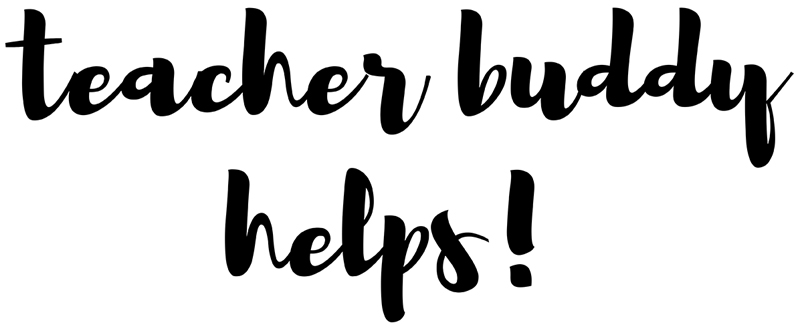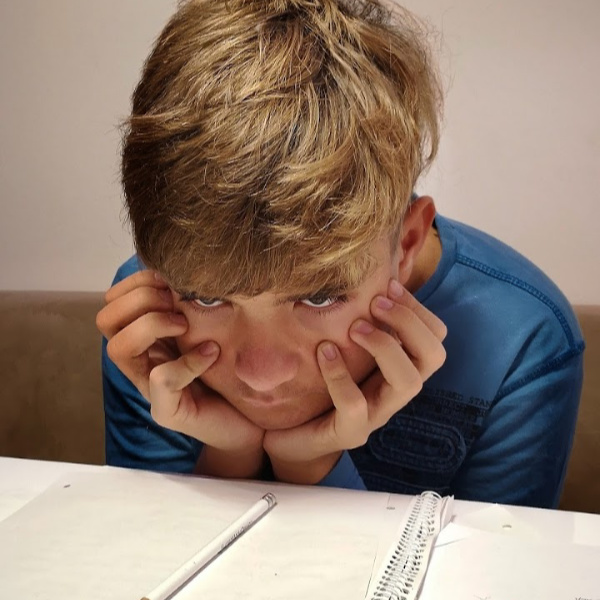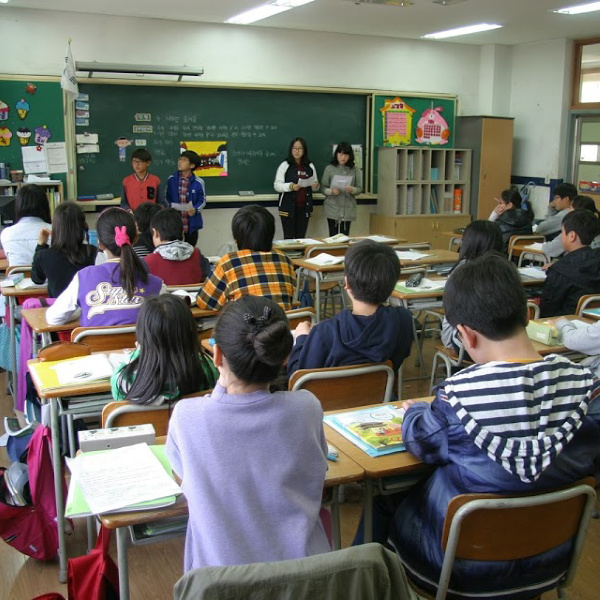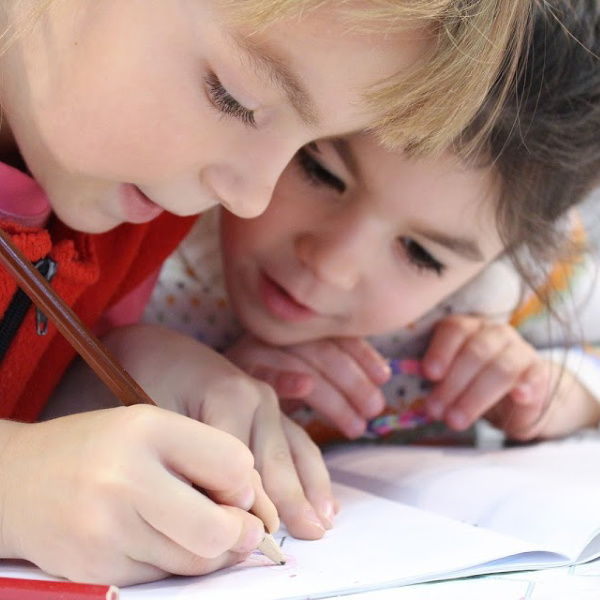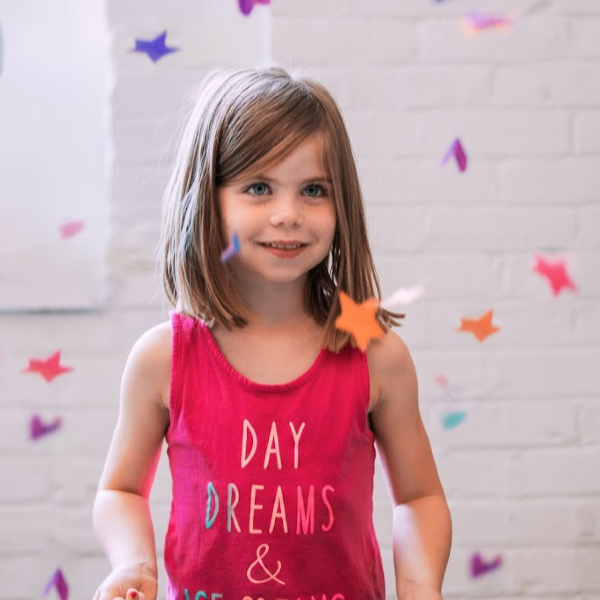Learning by Making Mistakes
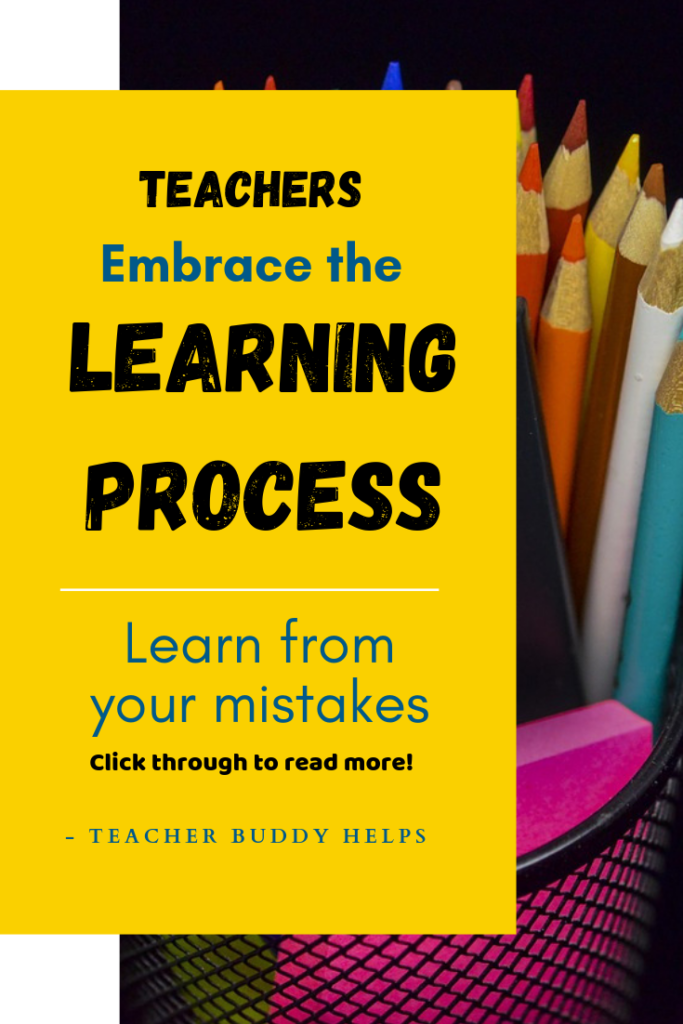
Learning by making mistakes; what am I talking about? As teachers, we all know that students learn by making mistakes. And yet, we agonize when they do.

LET’S EMBRACE THE LEARNING PROCESS!!
Now if someone keeps doing something incorrectly (thus NOT LEARNING from that mistake) that’s a different story altogether.
So, most of us have experience with students’ mistakes. What I want to discuss in this article are the mistakes we make as teachers. And how hard we are on ourselves when we do. Be kind to yourself, but LEARN FROM YOUR MISTAKES.
Let’s Talk About Teacher Mistakes
Mistakes (in my opinion) are caused in a few ways;
- You just didn’t know better.
- Are you inexperienced in that content/lesson/strategy?
- Were you careless?
- You try a good idea, but the outcome is less than expected and/or disappointing.
- You were under-prepared.
Let’s take a quick look at each one.
You Just Didn’t Know Better.
If you don’t know then you don’t know. But think about why you don’t know. Was there some preparation that you overlooked? Did your administration forget to tell the new teachers this policy?
Are you new to teaching this age group? If that’s the case then a few things this year WILL BE trial and error until you get adjusted to this new age group of students.
If you are new to teaching, I have a survival article that you might find helpful; you can click the link to read it Here; It’s called:
12 Things to Survive Your First Year of Teaching.
Are You Inexperienced in that Content/ Lesson/ Strategy?
There are some excellent strategies out there, but some take practice to get used to.
For example, calling on students randomly using a system. I used sticks with students’ names on them for years. I first started using them in order to be fair and ensure that I was calling on everyone equally. So, once I had pulled a stick out, it was placed on the table until I had gone through them all.
Later, I learned that this was not the optimal way to use these sticks. I learned that a better way that would promote random selection, was to put the stick back in the jar each time I had called on a student.
I know you are wondering “what happens if you call on the same student numerous times in a row.” If this happens, you admit defeat and pick another. The class will just laugh and go with it.
So my first few weeks implementing this switch I messed up a lot. I was teaching third grade at the time and told the students about the change I was going to make, so when I messed up they would catch it right away and correct me. I think some of them enjoyed being able to correct me. LOL.
You Were Careless.
I’m pretty hard on myself. Unfortunately, I think most teachers are. You can have an excellent observation lesson with only one minor mistake, but that mistake will haunt you until you speak to your principal about the lesson.
I have a suggestion for you about that, if it is INDEED a small mistake, don’t bring it up to the principal unless he or she asks.
When I was a principal, my teachers would tell be about a minor error and I would say, “I didn’t even see that.” (if I hadn’t). So, if they don’t notice, don’t bring it up. BUT if it’s a BIG error, yes bring it up first. It lets the principal know you picked up on it (which is a good thing).
Being careless happens to all of us. And the observation example above wasn’t necessarily about being careless, but rather a story about being hard on ourselves as teachers.
Just try your best not to be careless. I think carelessness increases when you are overly tired. Are you getting enough sleep at night? Do you need to take a weekend to recuperate? Do you need an R & R day?
What’s an R & R day?
R & R stands for Rest and Relaxation (or Recuperation).
When my own children were in school or daycare, there was usually one day a school year when I would call in sick just to recuperate without my own kids tugging on my leg.
I would make my sub plans, call in sick (before the phone apps were around), drive each of my own kids to their place for the day (school or childcare) and then go home and relax. If you take one of these days, DON’T squander it on housework.
Back to our list about Making Mistakes….
You Try a Good Idea, But the Outcome is Less than Expected and/or Disappointing
There could be a number of reasons that your outcome is disappointing. Did you miss a step in the teaching? Did you have all the materials ready for the lesson ahead of time?
Were the students engaged? Was there an outside distraction that you had no control over?
Did the class have enough background knowledge to tackle that content? If not, go back and fill in the gaps for the class. It’s okay to remediate. Just be sure to be sure all the class needs the remediation before doing this. If only a handful don’t understand, that is the time for “RtI” instead.

You were underprepared
We all know that we’re supposed to prepare for lessons. BUT life happens, and sometimes our preparations are mediocre at best. If this is why your mistake happened, then just accept that this was the reason.
I have an informative article on preparing ahead of time. You can read it here. It’s called: Teacher Organization – How to PREPARE and Stay Focused.
Pledge to try to be more prepared next time, and move on with the day and week. Things happen in life. It’s a fact of life and being human. Don’t beat yourself up about it.
I want to offer you a chance to download my FREE “Classroom Routines Checklist”. Just click on the link and fill out the info and it’s yours.
**
Here’s a good administrator story
When I was a brand new Assistant Principal in a large school district, I was assigned to the Head Start/State Preschool Program. Part of my duties was to supervise and evaluate a team of Coordinators (along with some teachers).
These Coordinators came up with a recruiting idea to increase parent involvement.
It seemed like a good idea to me, but being new I checked with the Director of the Program (a Veteran Administrator). After I described what they asked to do, my boss said, “Sure, they can do it, but it won’t work.”
I was speechless!
First of all, how did she know it wouldn’t work? And second, why did she want me to give them permission to do it if it wasn’t going to work?
How did she know it wouldn’t work?
She explained to me that the activity they were suggesting had been tried about eight years ago (before those Coordinators had worked there) and had failed miserably in terms of gaining more parent involvement.
So, I asked her, “Then why should we give permission for them to do it?” She explained that this would be a good learning experience for them. They would learn from their mistakes and grow to be better in their jobs.
WOW! MY MIND WAS BLOWN! I had not thought about that before. Of
Is this something you can do with your students. Allow them to struggle and make some mistakes that you can guide them out of and allow them to learn from it.
This will give you something to ponder!
Oh, and here’s a link to The FREE Guide I created for setting up your classroom.
**
So, now that you know make sure that you help all your students learn from their mistakes.
Until next time,
Your Teacher Buddy
